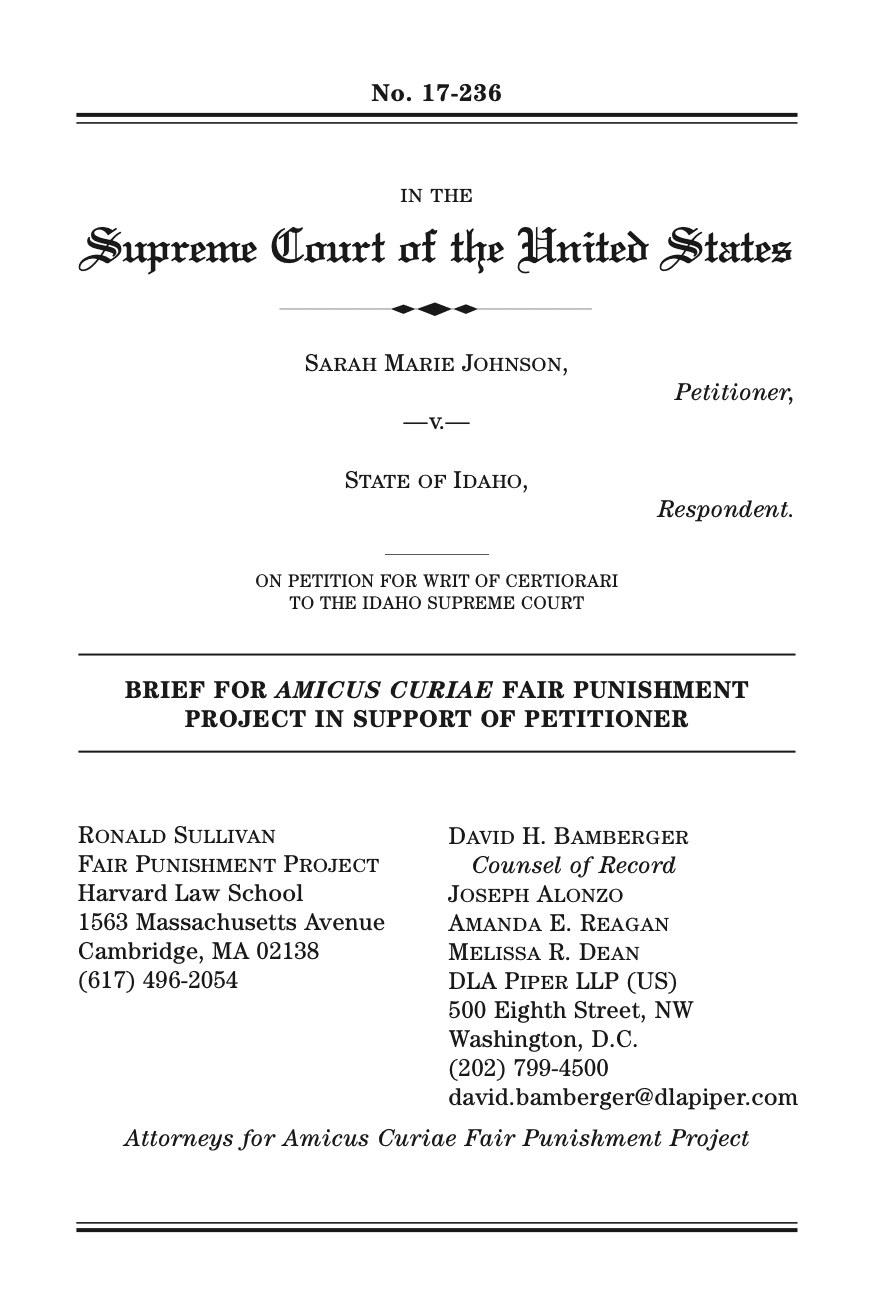
Summary of Argument
This Court should grant the petition and answer the question explicitly left open by Miller v. Alabama: whether “the Eighth Amendment requires a categorical bar on life without parole for juveniles.” 567 U.S. 460, 479 (2012). The answer to that question is now clearly yes, and the Court should hold that the U.S. Constitution categorically bars life without parole (“LWOP”) sentences for children.
The Court has previously recognized that imposing an LWOP sentence on a child violates the Eighth Amendment’s prohibition against cruel and unusual punishment “for all but the rare juvenile offender whose crime reflects irreparable corruption.” Montgomery v. Louisiana, 136 S. Ct. 718, 734 (2016) (quoting Miller, 567 U.S. at 479-80) (internal quotation marks omitted). Neither courts nor experts can accurately determine at the time of sentencing whether a particular child’s crime reflects “irreparable corruption” as opposed to merely “transient immaturity.” The brains of teenagers and young adults are still developing, a process that continues into the mid-twenties in many cases. It is apparent that any determination about how that process will continue and what its result will be is inherently speculative. In addition, scientific studies confirm that there are no identifiable factors that even psychological experts can examine to accuratelypredict how a child’s or young adult’s character might be reformed. Because of the impossibility of this determination, some lower courts have found any juvenile life without parole sentence violates their state constitutions, while others have reached inconsistent and arbitrary conclusions when reviewing juvenile life-without-parole sentences. It is critical that this Court resolve this question now, before more juveniles are sentenced to life based on unscientific and arbitrary standards.